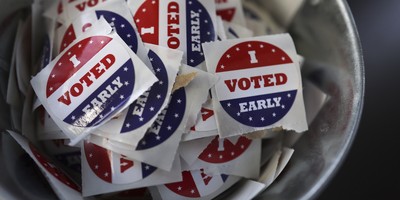Let me explain. The major banks hold trillions of dollars worth of residential mortgages. These include mortgages already in foreclosure as well as increasing numbers of non-performing loans (loans on which payments aren't being made), which are a conundrum for the banks.

If a bank forecloses on a home or agrees to a short sale (sale at a price too low for the bank to recoup the entire loan balance), it loses money in more ways than one. Obviously, the bank doesn't recoup the full amount of the loan, but the larger loss may be the decrease in the values of the current mortgages it holds on homes in the vicinity of the foreclosed property.
This is why. When a house is either sold or foreclosed, the price of the transaction becomes a matter of public record. Appraisers use it as a comp (comparable property) when they appraise other homes in the area, so those homes get lower appraisals. As more and more homes are appraised for mortgage or property tax purposes, each appraisal reflects the low appraisals of the others. The ultimate result is a devaluation of all the homes in the area.
Some banks are beginning to realize the negative effect of foreclosure on their current mortgages, which is making them less anxious to foreclose and more willing to work with borrowers to find mutually beneficial solutions.
Recommended
Unemployment, which a bank is unable to do anything about, is the main reason people aren't paying their home loan bills. So what should the bank do? If a borrower stops making payments on a loan, the bank has to set aside additional reserves to prepare for the upcoming loss. If the bank forecloses or agrees to a short sale, the loss eats into the bank's reserves and, as I explained, the foreclosure or short sale lowers the value of other properties in the area.
The factor I haven't mentioned with regard to the banks' dilemma is the way the appraisal industry operates under the new HVCC rules propagated by Andrew Cuomo. I have written about the serious problems this new law has caused, but I will put it in perspective for this discussion. In a refinance, under HVCC the appraiser isn't told the size of loan, type of refinance, lender or, in many cases, hasn't ever worked in the location of the property. In a purchase, the appraiser knows the price but not the down payment or loan size. Appraisers have been criticized severely, so their inclination is to bring the values in as low as possible. There isn't any incentive for them to seek a middle ground because, unlike in the past, they are hired by third parties from whom they have no reason to expect more business. The National Associations of Realtors reports that these low appraisals have caused a great number of sales to fail. Note: Now, as in the past, a lender can question the appraisal by doing a desk or field review, checking an automated value module, or all of the above.
Another issue banks face is whether or not to grant loan modifications. Most banks will only consider modifying loans on owner occupied properties.
Furthermore, they won't begin to discuss loan modification with a borrower until his payments are late. They will only modify a loan if the borrower can show sufficient income to make the new payments. Essentially, loan modifications are reserved for employed borrowers whose interest rates are high, but who can't refinance their mortgages because of bad credit, high loan to value, or insufficient income and are behind in their payments. Usually, under these circumstances, the lender will modify the payment, the balance, or both on a first but not a second mortgage. The numbers of loan modifications are extremely small in relation to the borrowers in need of them and infinitesimal in comparison to the total mortgages outstanding.
Once a borrower gets a loan modified, he may be faced with a new problem. Credit card issuers continually check on a borrower's credit, and missed payments alert them to credit problems. They will cut off the borrower's privileges or lower his limits immediately. As a result, we will have a new class of working citizens who are unable, if willing, to make the new purchases that drive our economy. How did this happen? The borrowers needed to miss their mortgage payments in order to get their home loans modified!
This administration doesn't appear to be all that concerned about the real estate industry. Rules and regulations arrive weekly making it increasingly difficult for would-be borrowers to qualify for loans and forcing those who are self-employed to continue to find some alternative to standard home financing. With the reset of the Option ARM (known for its 1% start rate) staring us in the face, along with the aforementioned problems, we are facing the tips of some rather large icebergs that could eliminate any chance of a quick and lasting recovery.
Remember, when your neighbor loses his house to foreclosure or short sale, your equity is diminished. Like it or not, we are all in this together.

























Join the conversation as a VIP Member